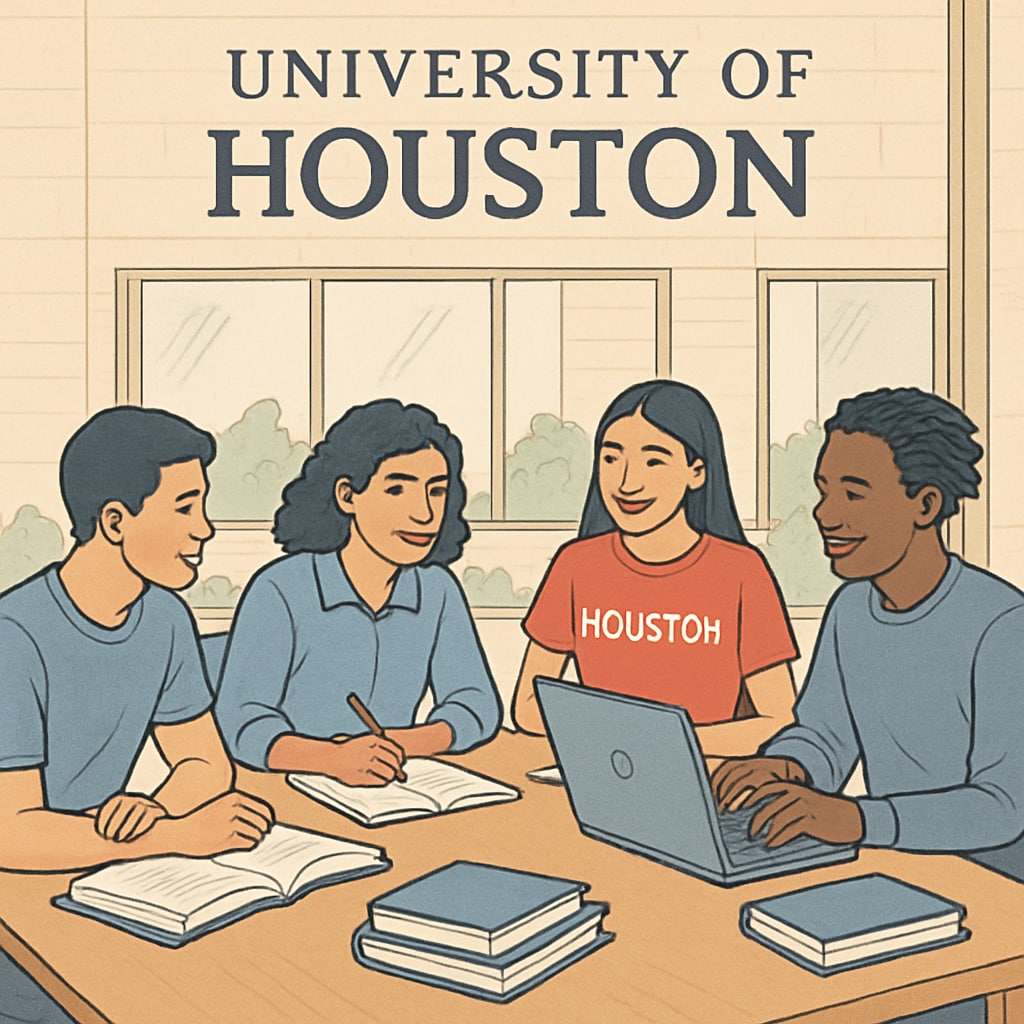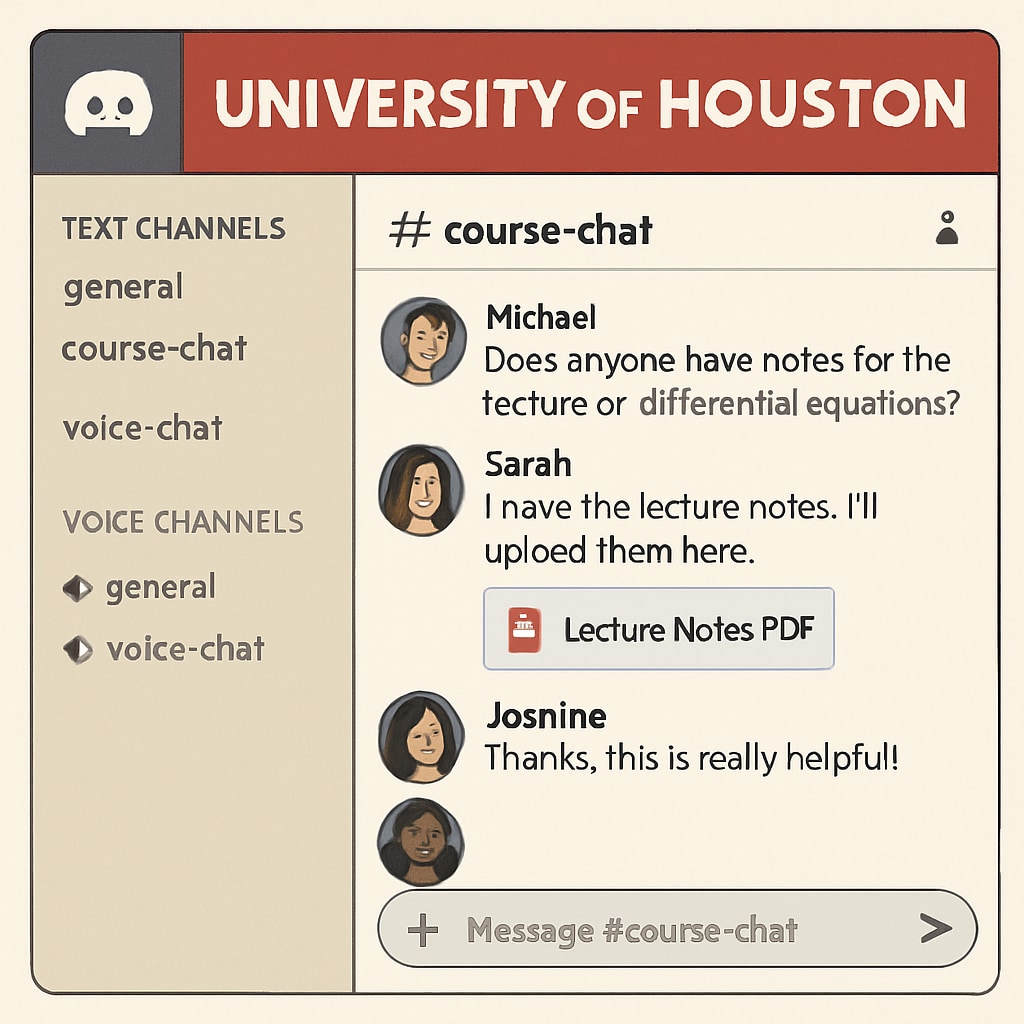Transitioning from K-12 education to university life can be a challenging experience, but resources like study groups and Discord communities at the University of Houston provide essential academic and social support. These resources not only help students build strong academic networks but also nurture collaboration, enabling students to unlock their full potential. This article explores the benefits of these communities and offers practical tips for finding and joining them.
The Role of Study Groups in Academic Success
Study groups are a cornerstone of academic success at the University of Houston. Students often find that collaborating with peers enhances their understanding of complex concepts, especially in challenging subjects like math, engineering, and the sciences. Study groups foster an environment where students can share resources, clarify doubts, and stay motivated.
For example, many University of Houston students form study groups within their classes or through campus organizations like the Honors College. These groups meet regularly to review course material, prepare for exams, and work on group projects. The collective effort often leads to improved academic performance and a deeper understanding of the material.

Leveraging Discord for Virtual Collaboration
In the digital age, platforms like Discord have become invaluable tools for fostering academic collaboration. At the University of Houston, many students use Discord to create virtual study communities. These servers allow students to connect, share information, and interact in real-time, regardless of their physical location.
Discord servers often include dedicated channels for specific courses, topics, or interests. For instance, a student taking organic chemistry might join a channel where classmates share notes, discuss difficult concepts, and even host virtual study sessions. The platform’s voice channels and screen-sharing features make it an ideal choice for collaborative learning.
To find Discord communities at the University of Houston, students can check class syllabi, consult professors, or search online forums. Many student organizations also maintain active Discord servers, providing additional opportunities for networking and collaboration.

How to Find and Join Study Communities
Joining a study group or Discord community at the University of Houston is easier than you might think. Here are some practical steps to get started:
- Attend Class: Many study groups form organically among classmates. Be proactive in asking peers if they are interested in studying together.
- Utilize Campus Resources: Check out bulletin boards, online platforms like Blackboard, and student organizations for study group announcements.
- Search Online: Platforms like Reddit and Discord often host University of Houston-specific forums where students connect.
- Speak with Professors: Some professors encourage study groups and can help facilitate connections among students.
By taking these actionable steps, students can tap into the wealth of academic and social resources available at the University of Houston.
Benefits Beyond Academics
While study groups and Discord communities primarily focus on academics, they also provide significant social and emotional benefits. These communities help students build friendships, reduce stress, and develop essential communication and teamwork skills. For new students, they can serve as a vital support system, easing the transition to university life.
Moreover, participating in study groups often enhances leadership and organizational skills. Students who take the initiative to organize meetings or manage Discord channels gain valuable experience that can benefit their careers post-graduation.
As a result, these communities are more than just tools for academic improvement—they are integral to personal and professional growth.
In conclusion, the University of Houston offers numerous opportunities for students to join study groups and virtual communities, creating an environment where collaboration thrives. By actively seeking out these resources, students can not only excel academically but also build lasting relationships and essential life skills.
Readability guidance: The article maintains clear and concise paragraphs, uses bullet points to summarize key ideas, and incorporates transitional words to ensure smooth reading. Passive voice and long sentences are minimized to enhance clarity.


